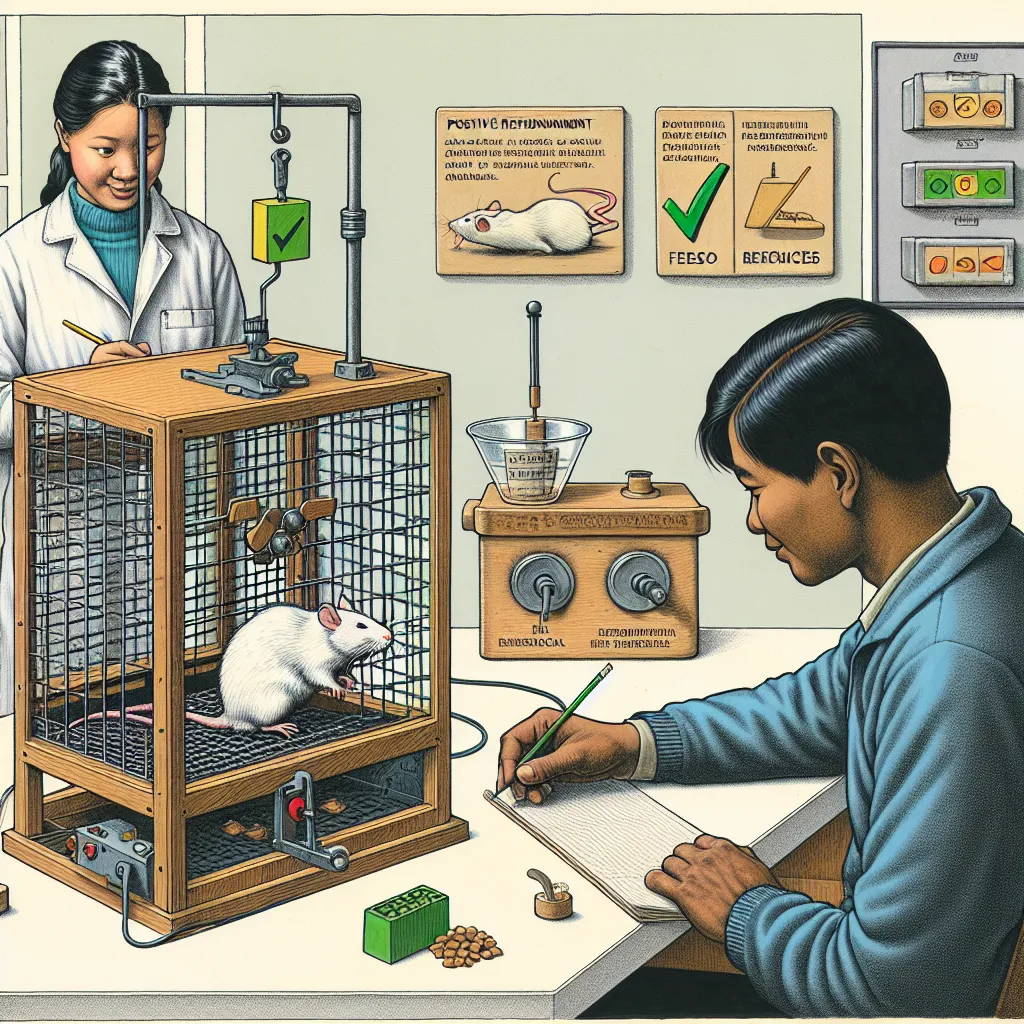B.F. Skinner remains one of the most influential psychologists in the field of behavioral science. His innovative experiments and theories on behaviorism have had a profound impact that has transcaped both time and the boundaries of the discipline. His work focused on understanding human behavior by looking at the causes of an action and its consequences, a theory popularly known as operant conditioning.
Skinner introduced the concept of reinforcement, an idea that actions followed by positive outcomes are more likely to be repeated, while those followed by negative outcomes are less likely to occur. This was a monumental shift away from classical conditioning, which was primarily concerned with the associations between stimuli. Skinner’s operant conditioning, on the other hand, placed importance on the consequences of behavior and how it could be shaped over time.
One of Skinner’s most notable experiments was the Skinner Box experiment. The Skinner Box, or operant conditioning chamber, was a device used to observe and control the behavior of animals, typically rats or pigeons. Within the box, an animal could be trained to perform certain actions, such as pressing a lever or pecking a disc, in response to specific stimuli. When the animal carried out the desired action, it would receive a reward, often in the form of food. Through this reinforcement, the behavior could be strengthened and maintained.
Another groundbreaking aspect of Skinner’s work was his focus on observable behavior. Unlike other psychologists of his time, who were more interested in the inner workings of the mind, Skinner argued that since thoughts and feelings could not be seen or measured, they were not relevant for scientific study. He contended that the only valid way to understand behavior was to look at the cause and effect relationships experienced by the subject.
Skinner’s behaviorist experiments brought about substantial developments in both psychology and education. His principles have been applied in numerous areas, including behavioral therapy, teaching, and workplace management. In behavioral therapy, for instance, therapists utilized reinforcement strategies to help clients modify undesirable behaviors and encourage better ones. The use of behavior modification techniques has been successful in treating a variety of issues ranging from phobias to substance abuse.
In the field of education, Skinner’s work led to the development of programmed instruction and teaching machines that allowed students to receive immediate feedback on their performance. This personalized approach to learning meant that students could work at their own pace, receiving positive reinforcement as they mastered each new concept. His ideas are evident in today’s educational technology, where adaptive learning systems tailor content to the learner’s performance in real-time.
Skinner’s influence also extends to the corporate sector, where his theories on behavior modification have informed human resources practices and management strategies. Concepts such as performance-based incentives and employee recognition programs draw heavily on the principles of positive reinforcement to boost productivity and employee satisfaction.
Critics of Skinner’s behaviorist experiments argue that by focusing solely on observable behaviors and neglecting the inner mental processes, his approach is overly simplistic. Against Skinner’s dismissal of cognitive processes, cognitive psychology has emphasized the importance of internal mental states such as beliefs, desires, and motivations. However, Skinner maintained that these states are simply more behavior to be explained rather than causes of behavior.
Behaviorism, as conceptualized by B.F. Skinner, caused a rift in psychology that ultimately led to the cognitive revolution, mainly as a response against the limitations imposed by behaviorist thought. Nevertheless, the methodologies and principles of behaviorism remain an integral part of psychological research and application.
Moreover, Skinner’s contributions have had an enduring effect on other fields, such as animal training. Modern positive reinforcement techniques used in dog training, for instance, have their roots in Skinner’s operant conditioning. These methods promote cooperation and trust between animals and humans, often leading to better and more reliable results than traditional techniques based on punishment.
In the realm of technology, Skinner’s principles paved the way for the development of machine learning and artificial intelligence. These advanced systems learn and adapt their algorithms based on the input they receive — a process not unlike the operant conditioning Skinner proposed for understanding human and animal behavior.
Skinner’s dedication to an empirical approach to psychology set a course for the future of the field. His insistence on measurable and observable behavior as the basis for psychological research underscored his commitment to a scientific understanding of human and animal behavior. His work, emphasizing environmental factors over biological ones in shaping behavior, has lent itself to various applications that focus on the influence of the environment and context on behavior.
The impact of Skinner’s behaviorist experiments is also seen in public policy, where behaviorist principles inform programs aimed at modifying societal behaviors. Campaigns aimed at reducing smoking, encouraging recycling, and promoting healthy living have all drawn on the concepts of reinforcement and punishment to encourage positive changes in behavior.
Finally, Skinner’s legacy is not just limited to academia and professional practice; it has also seeped into popular culture. His ideas have been explored in novels, films, and television shows, often sparking debates about free will, the nature of behavior, and the ethics of behavior modification.
In conclusion, B.F. Skinner’s behaviorist experiments significantly shaped the field of psychology and its application in various aspects of human endeavor. His focus on reinforcement and the measureable outcomes of behavior not only revolutionized psychological research and therapy, but also laid the groundwork for advancements in education, technology, management, and beyond. Despite criticism and the rise of cognitive psychology, Skinner’s legacy endures through the ongoing use and development of behaviorist principles in multiple domains. His work continues to influence and inform our understanding of behavior and paves the way for future innovations in behavioral science.



Leave a Comment